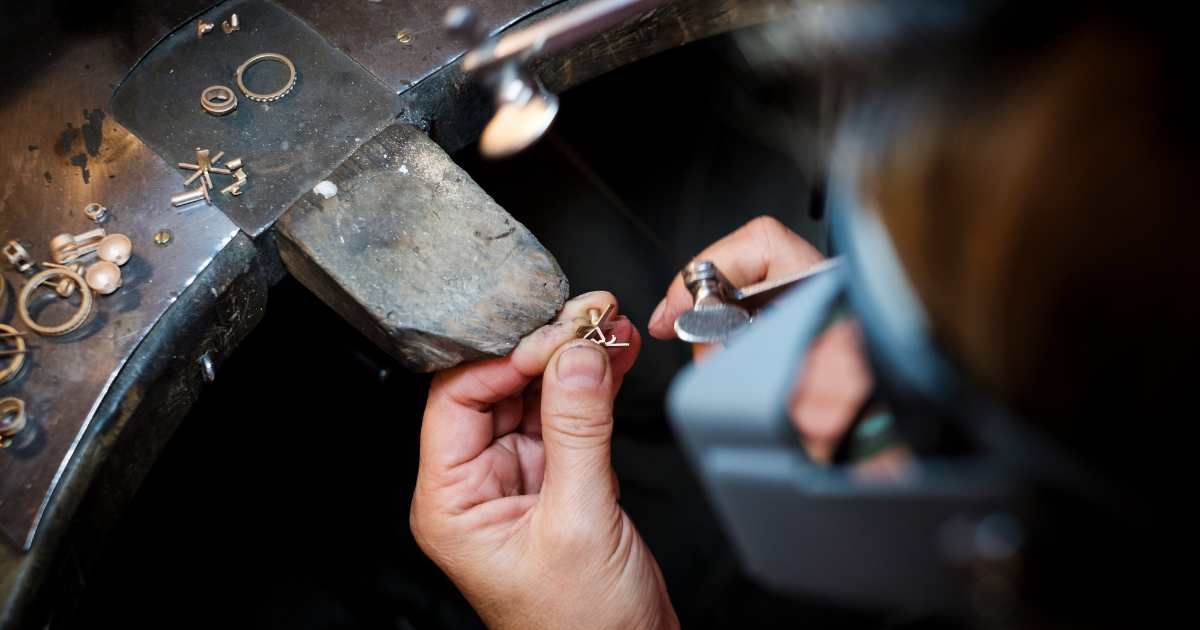
Whether you aim to buy, sell or craft jewellery, particularly those that have precious metals and stones, starting a jewellery business has a lot of red tape to jump through. But if this is where your interest lies, nothing will stop you from pursuing your dream, right? However, if you are not into crafting jewellery with these materials, you can still use beads, upcycled goods or fabric instead.
South Africa’s jewellery market was valued at USD 1,10 billion between 2023 and 2024, and is projected to grow at a 4,26% annual rate. This indicates that this is a business idea to investigate.
Types of Jewellery Businesses
When you start a jewellery business, you must understand what type of person would buy your products, as well as what services they may require. Here are some jewellery businesses that you can consider.
Custom jewellery: This service offering is ideal for someone who wants bespoke or customised items. It can include engraving and design as well as manufacturing. Some examples of clients can be unique engagement rings, or a special pendant for a special occasion.
Jewellery retailer: A retailer focuses on the sale of standard jewellery items – rings, bracelets, watches, chains… if it’s jewellery, a retailer can stock it
Manufacturing: Here, the emphasis is on creating and designing pieces of jewellery that you can build your brand around.
Jewellery repair service: Scratched jewellery, broken watches, ring resizing and welding broken chains. You can consider mending precious jewellery (and memories) with this type of business.
Documents and Legal Requirements
Apart from registering your business with the Companies and Intellectual Property Commission and the tax regulator, jewellery businesses also need to adhere to a jeweller’s permit.
A jeweller’s permit is a document that allows a business owner to legally sell, purchase and craft with precious metals and stones. The regulator for these permits is the South African Diamond and Precious Metals Regulator (SADPMR) and the legislation that governs this industry is the Diamonds Act, 1986 (as amended) and the Precious Metals Act, 2005 (Act 37 of 2005).
The application for a jeweller’s permit needs to be accompanied by:
- Original Application form PMJ for a Jeweller Permit
- SAPS 365 police clearance certificate. If in the company for all directors (not older than 3 months)
- SARS tax clearance (if company application in company only) or personal tax clearance (if individual application)
- Identity document/s
- Proof of business premises/lease agreement for 5 years, Jewellery Studio / Workshop
- Proof of bank account
- Company registration document (CIPC COR 14.3) (if applicable)
- Company resolution (if applicable)
- Business plan for the next 5 years as per the mining charter
- Proof of Technical Ability – training certificates
- NEMA compliance letter
It’s important to note that different licences are required for activities like refining, beneficiation (value addition), and jewellery making. The South African Police Service and authorised officials can inspect your workshop at any time and seize unlicensed materials. Aside from confiscation of precious metals, violations can also lead to additional penalties.
Equipment Needed to Start a Jewellery Business
Whether you manufacture or repair jewellery, you may need the following equipment.
- Tools for casting
- 3D printer
- Laser cutter
- Soldering iron
- Blowtorch
- Ring stretcher/reducer
- Pliers, tweezers, clamps and other hand tools
If you are already a qualified gold or silversmith, you probably already have some of these tools.
Source Quality Materials
Whether it is gemstones or precious metals, you will need to source materials from a trustworthy (licensed) source. SADPMR should be able to guide you through this process and put you in touch with some of their licensed members.
Once you have made contact with these individuals, establish strong relationships with reliable suppliers to ensure your jewellery is always of the highest quality.
Set up Shop
There are two strategies that you can take. You can either choose to set up an online shop or you can open a physical store. Whichever one you choose will depend on your needs. Although an online store has lower running costs, you will still need a workshop space that also has a utility bill.
Investigate what the rental cost will be for a shop and compare this price against what it will cost to host your online business. Remember to factor in the additional cost for a workshop if you choose to go the online route.
If you are going the digital route, you can take a closer look at the variety of e-commerce platforms that we have reviewed.
Marketing Your Business
Regardless of having a digital or physical shop, a few marketing tools to help you advertise your business that are always helpful are social media and e-mail marketing.
Open social media accounts and start posting images from your product line and videos showing your work. You can also start a mailing list based on existing customers. You can also rely on traditional marketing methods like pamphlets, but attending events may prove more successful, because people can admire your craftsmanship.






Recent Comments